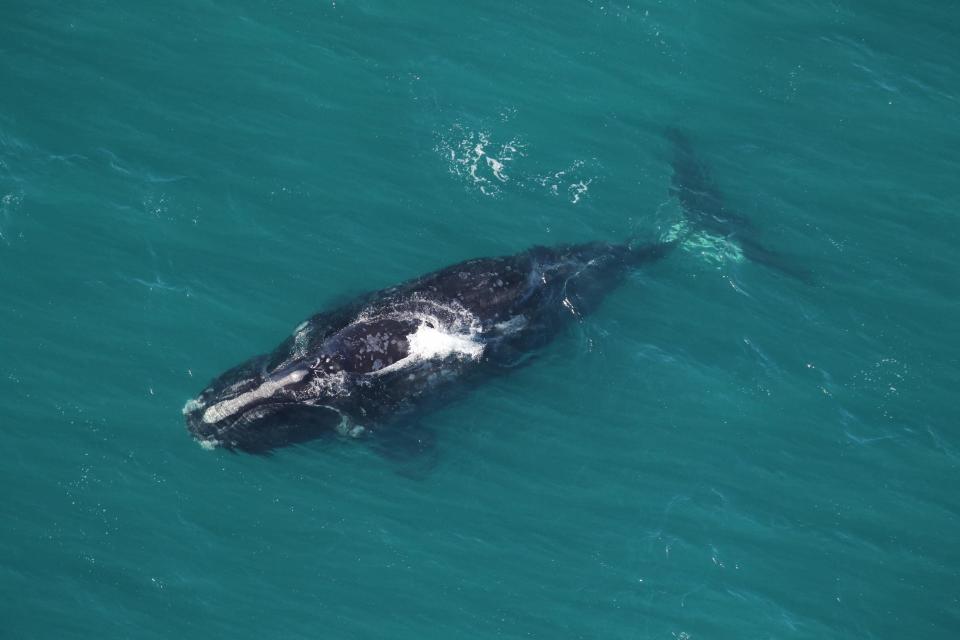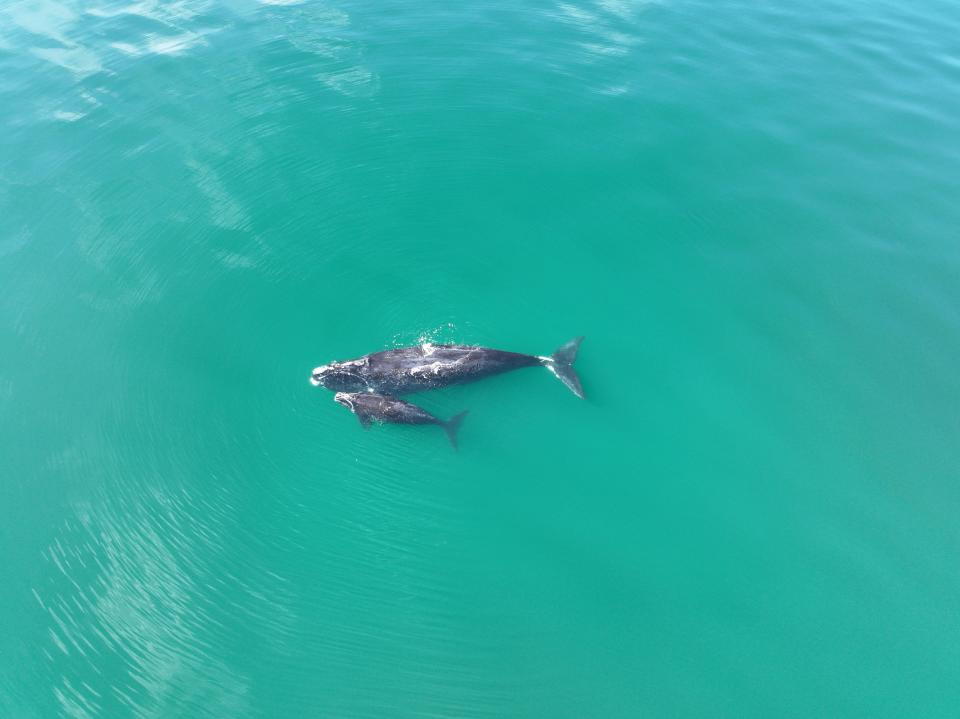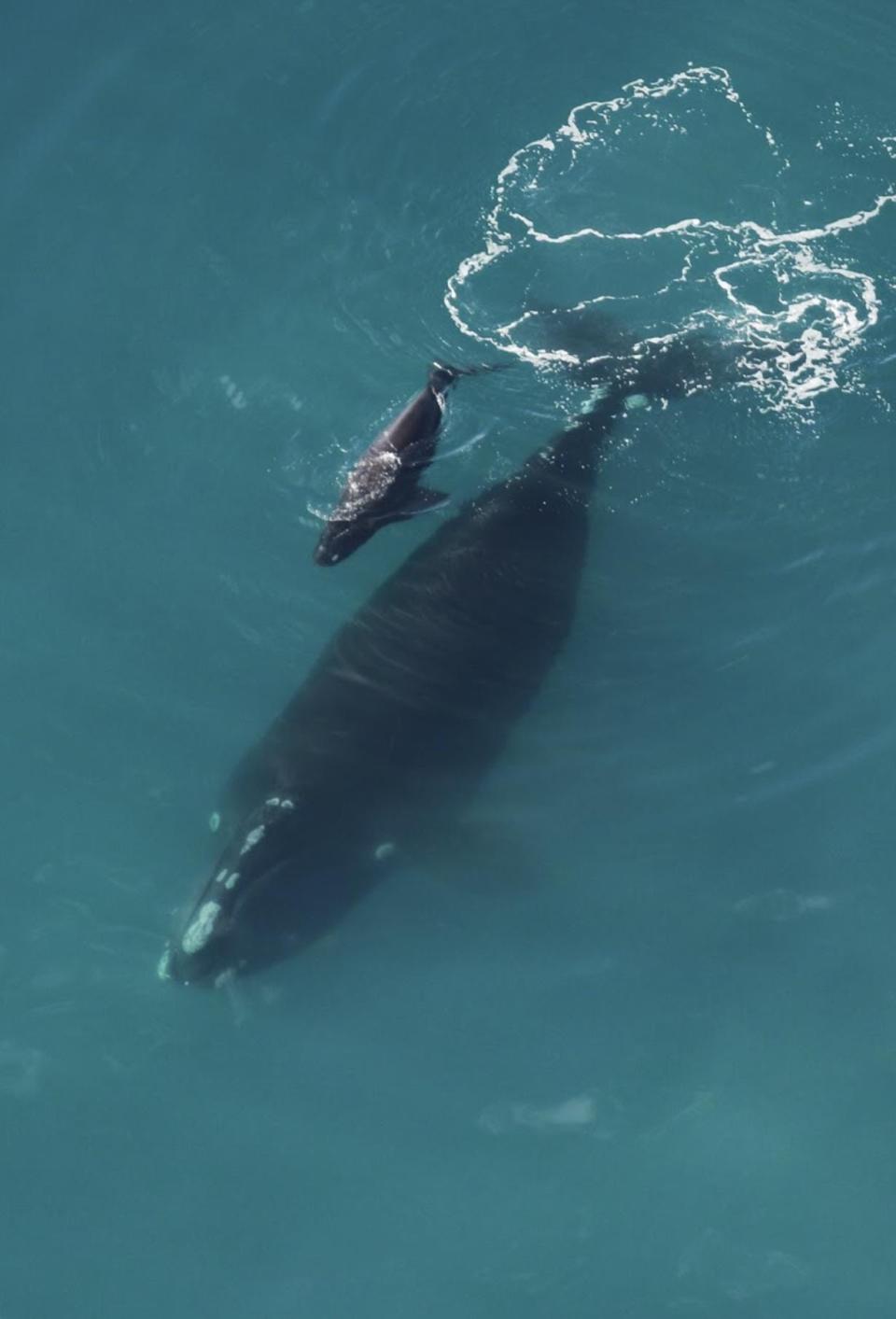Doing right by whales: Groups urge NOAA to enforce boat speed rules off Georgia Coast
Editor's note: A previous version of this story noted that the Georgia coast is part of the whale's breeding grounds, which it is not.
Conservation groups are urging the National Oceanic and Atmospheric Administration's Fisheries Service to implement vessel speed regulations in an effort to save the last of the North Atlantic right whales.
The slate of conservation groups which filed an emergency rulemaking petition regarding the boating speeds on this month included the Center for Biological Diversity, Conservation Law Foundation, Defenders of Wildlife and the Whale and Dolphin Conservation.
Whale conservation: Partnership launches acoustic monitoring buoy for whale conservation off the coast of Savannah
Marine sanctuary: Gray's Reef National Marine Sanctuary celebrates upcoming downtown discovery center
"We are asking the agency to immediately apply its proposal to expand the protections in the Southeast, including making the rule apply to vessels 35 feet in length and greater," said Kristen Monsell from the Center for Biological Diversity's oceans program.
A species in decline
North Atlantic right whale populations are at the precipice. With only 340 of them left, fewer than 70 of the whales are reproductively active females that could help the population rebound.
By the beginning of the 1900's, whalers had hunted North Atlantic right whales to near extinction. While whaling is no longer legal, human interactions — such as boat strikes and fishing nets — continue to endanger the whales and prevent the population from recovering.
Doing right by whales: Georgia DNR implores recreational boaters to do the right thing by Right whales
Speeding threat: Speeding vessels threaten Georgia state marine mammal, the endangered right whale
According to the emergency petition, the North Atlantic right whale's population has decreased 30% in the last decade alone.
The National Oceanic and Atmospheric Administration's Fisheries Service declined to comment, but did provide resources compiled by the organization and available on their website.
Since 1999, the agency said six North Atlantic right whales have been found dead or sighted off the coast with serious injuries in Georgia. The whales are particularly vulnerable to boat strikes along the coast of the Southeast because they are frequently near the shore and swimming close to the water's surface in their calving grounds, where they have babies during the late fall.

Expanding rules to save the whales
The conservation groups' emergency petition hinges on the fact that NOAA has already sorted out a new, proposed regulation. According to NOAA, the proposed changes would broaden the geographical space of the speeding regulation as well as the timing of seasonal speed restrictions along the East Coast. The rule change would also expand mandatory speed restrictions of 10 knots or less to include most vessels 35 to 65 feet in length.
"All the available evidence indicates the agency has to act quickly, and speeding ships just can't be allowed to kill mother right whales and their babies during the calving season or it could very well mean the extinction of the species," Monsell said.
According to Monsell, the emergency authorization could be enacted immediately. The agency has the authority to do so under the Administrative Procedure Act, Endangered Species Act, and the Marine Mammal Protection Act to take action. The last steps would be for NOAA to publish an "emergency interim final rule" in the federal register.

No speeding zone
Many Georgians might not realize the state has whales off its coast during the late fall and winter.
Courtney Reich, coastal director for Georgia Conservancy, said it was only in recent decades researchers learned that the whales' calving grounds were off the coast of Georgia, and since they do not breach out of the water they're easy to miss.
Because of this, the whales' conservation efforts have been centered in the Northeast, said Nancy Daves from Georgia Interfaith Power and Light.

Working on the speeding regulations is a new effort to make a concrete impact on the whales' numbers after 20 years of "conservation whack-a-mole" – chasing down threats as they crop up from early 2000s large vessel speed limits to fishing line entanglement to climate change shifting the whale's habits and locations.
Oceans Connect, a nonprofit looking to promote understanding and protection of Georgia’s Continental Shelf and Blake Plateau, is one of several local organizations collaborating on North Atlantic right whale conservation. CEO Simona Perry said she's working to collaborate with other Georgia groups as well as the larger community — including fishers, boaters, decision makers, scientists and more — to bring collaboration and coordination to the state's North Atlantic right whale conservation, and advocating for the speed rule is just one way the groups are collaborating on the conservation issue.
"The speed rules are not new," Reich said. They have already been implemented and enforced for larger vessels, and this change would simply tweak what boats must comply. When the first rules were implemented, she said there was a dramatic decrease in boat strikes, and that this expansion of the rule will be successful in reducing deaths and injuries.
"We want boaters to feel like they're champions for the whale," Perry said. Historically, fishers, divers and other ocean-recreators have been strong partners, and boaters are no different.
Marisa Mecke is an environmental journalist. She can be reached at mmecke@gannett.com or by phone at (912) 328-4411.
This article originally appeared on Savannah Morning News: Petition urges speed regulations to save North Atlantic right whales


